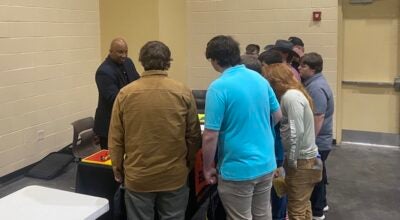Special education program’s future uncertain
Published 6:02 pm Thursday, May 23, 2013
Two decisions the Chilton County Board of Education made on May 21 will factor into the structure of special education programs in local schools next year.
The board voted unanimously to continue a preschool class at Clanton Elementary to serve children eligible for special education services.
The board also voted to provide ESY (Extended School Year) services to special needs students with IEPs (Individualized Education Programs) and who have severe learning and behavioral challenges.
Although the amount of funding available for school programs in Chilton County in the 2013–2014 year is still uncertain, Board of Education members, administrators and parents have concerns about what could lie ahead for local schools.
The Alabama Legislature’s current session ended May 20, but the board has not been sent a final number from the state regarding how much funding Chilton County Schools will receive for the new school year.
After the state releases final funding information, the board will determine how much funding can be allocated to individual programs based on enrollment and personnel numbers.
One program potentially facing reconfiguration is PALS, a preschool program geared toward special needs students ages 3–4 currently offered at Clanton Elementary, Jemison Elementary and Maplesville Elementary.
Chilton County Schools Superintendent Dave Hayden said PALS served about 40 students in the 2012–2013 school year, 19 of which were special needs students and the rest non-special needs, or “typical,” students.
Three instructors, one per school, and teachers’ aides as needed comprise the PALS staff at CES, JES and MES.
Hayden said enrollment in PALS was lower this year than it has been in the past, making it difficult to justify having three separate sites for the program.
But despite rumors suggesting the PALS program would be cut out of schools next year, Hayden said eliminating the program is not an option.
“These special needs students will be served, but there will be changes in it,” Hayden said of the program. “There may not be as many typical students in the program, but there was never any intention to cut out programs for special needs students.”






